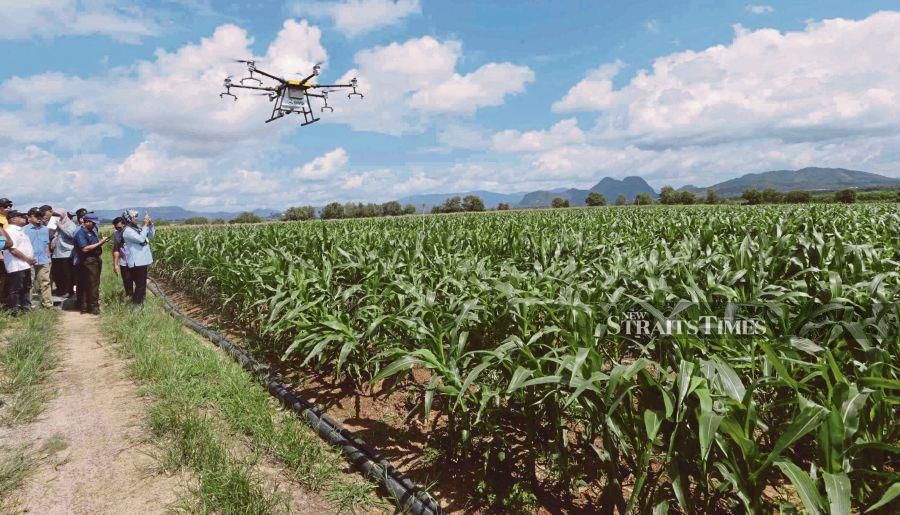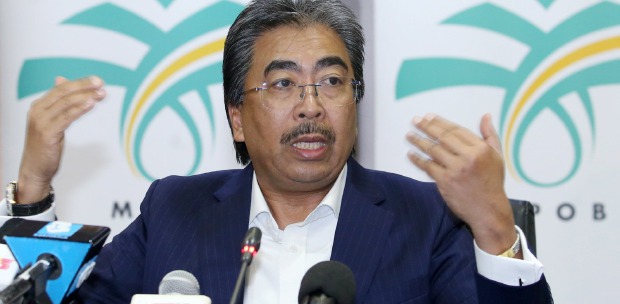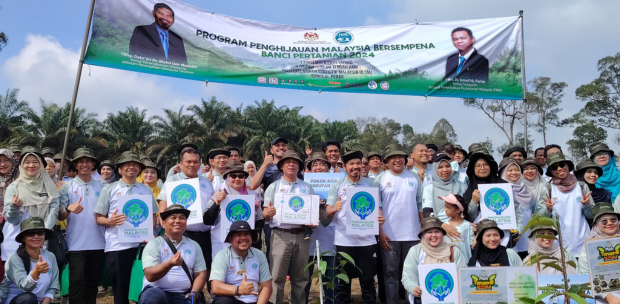Malaysia has a rich agricultural history that has evolved over the centuries. The country's agricultural sector has been a major influence on its economic development and cultural heritage, but like many other developing countries, Malaysia has also experienced rapid industrialisation and urbanisation over the years.
With the advent of industrialisation and urbanisation, the country shifted its focus to the industrial and service sectors, which led to a decline in the rural population, resulting in less labour available for agriculture.
Malaysians have sought employment opportunities in urban areas or other sectors that offer higher wages and better working conditions.
The country's desire to actively diversify its economy beyond agriculture was driven by a desire to reduce dependence on a single sector and a quest for economic stability.
However, as Malaysia moved forward with its economic development, the reduced importance of agriculture and food production had an impact on the economy as Malaysia's import bills soared, increasing pressure on the ringgit, which was already extremely volatile due to external factors beyond the country's control.
The Covid-19 pandemic, combined with the conflict in Eastern Europe and climate change, has exacerbated problems and further threatened the country's food security.
It is estimated that 60 per cent of Malaysia's food is imported and with the declining ringgit and increasing prices of food due to global supply chain disruptions, Malaysians have been experiencing a declining standard of living, especially with the higher price of essential goods.
In 2022, the import value of food to Malaysia was approximately 75.71 billion Malaysian ringgit, an increase from 63.65 billion in the previous year. The value of food imports has been increasing steadily since 2012 despite a decline in 2018.
Economists have chimed in to say that Malaysia only produces 46 per cent of its vegetables, 70 per cent of its rice, 61 per cent of its fruits, and 25 per cent of its meat every year.
A quick way to resolve the problem is to quickly bolster agricultural production with government-linked companies (GLCs) that were traditionally involved in the production of commodity crops to increase the production of food crops with the assistance of the state government releasing more land for the cultivation of food.
Sufficient incentives must also be given to bring to fruition their plans.
It is paramount that Malaysia be able to attract a large number of youths into the agricultural sector to reduce youth unemployment and dependence on foreign labour aside from helping to shore up food production and helping its exports in the food-related industry.
The government can encourage youth participation in the sector through an emphasis on the role of technology in precision farming, and data analytics and by showcasing how technology can make farming more efficient, sustainable, and profitable.
It can also introduce government grants, subsidies, or low-interest loans specifically targeted at young individuals interested in pursuing agriculture as a career.
The use of big data, Internet-of-things (IoT) and automation to control and monitor the farming process from fertilisation to irrigation, which is combined with fertigation, to pesticide spraying and harvesting will also reduce wastage and leakages while enhancing the quality of output.
Youths should also be provided with grants that will help them secure land for agricultural purposes, eliminate barriers to start-up capital, and ensure that there are training programmes to entice youths with disciplines in areas other than agriculture.
Another important aspect is to develop and promote better market linkages for farmers, including the creation of farmer cooperatives and the establishment of agribusiness clusters. This will help farmers access larger markets and negotiate better prices.
Athira Badrolhisham, [29/9/2023 6:42 PM]
It is hoped that there will be more investment in agricultural research and development, as well as high-yielding disease-resistant crops through collaboration with local research institutions.
Malaysia should also support the growth of agribusiness and food processing industries to add value to agricultural products and create more job opportunities. This should be coupled with facilitating market access for Malaysian agricultural products by removing trade barriers and ensuring compliance with international standards.
Another sector that has considerable potential is to allow tourists to visit farms and experience agricultural activities, which can generate additional income for farmers.
With many of these initiatives to bolster agricultural production, Malaysia would be able to bring down the cost of essential goods, leaving consumers with more money to spend on other goods, which would invariably bolster consumer spending and enhance domestic investment.
This would certainly bode well for the economy as increased aggregate demand would lead to increased domestic investment and higher employment.
Shoring up domestic investments and increasing consumer spending is crucial as this would offset the tepid exports expected this year following global headwinds that would not spare any country from the vagaries of the external environment.
Reviving the agricultural sector would not only bring bounties to the people in the form of reduced food prices and other essential items that form the bulk of their purchases but also reinvigorate the whole economy.
The writer was formerly attached to a think tank.
The views expressed in this article are the author's own and do not necessarily reflect those of the New Straits Times






